How Machine Learning in Travel Can Reopen the Industry Post COVID
Sanam Malhotra | 3rd August 2020
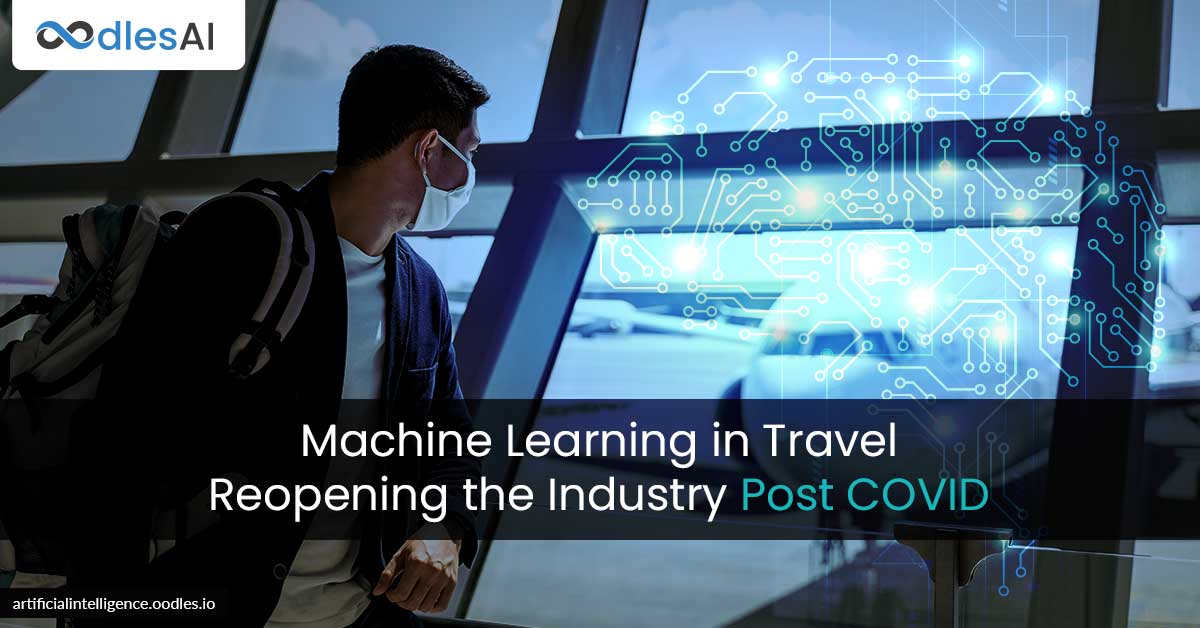
The travel industry has faced the strongest brunt of coronavirus across verticals. From airlines to hotels, and tourism businesses, revival is becoming bleaker with the virus spreading across countries. Amid uncertainties, artificial intelligence (AI) is offering adaptive solutions and self-learning systems for travel businesses to win over the new normal. Especially, machine learning in travel is paving way for contactless applications that not only promise safety but also improve decision-making capabilities.
We, at Oodles, as an emerging AI Development Company, look closely at how AI can restore the global travel industry.
A Road Less Travelled: COVID Implications for Travel and Tourism
The implications of COVID-19 are far-reaching, particularly for the global travel industry. The pandemic alludes to long-term restrictions on global travel, translating to negative revenues, poor customer experience, and job losses.
Considering the continuing pandemic, the World Travel and Tourism Council projects a global loss of $2.1 trillion in revenues.
With a 30% drop in business volumes, travel and tourism companies stare at a bleak future until a vaccine is found. The immediate and long-term concerns for the travel industry today look quite similar including-
a) Economic uncertainty
b) Travel restrictions
c) Unaffordable employment
d) Political uncertainty
e) Unsatisfying pricing, and
f) Directionless marketing
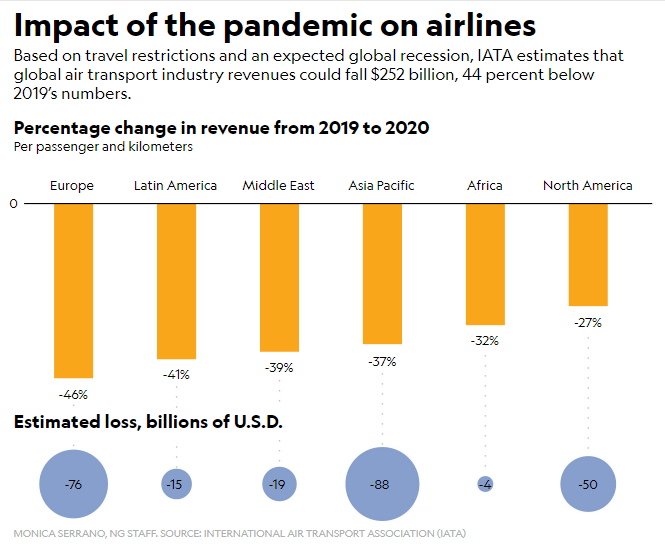
National Geographic visualizes the losses borne by the airline industry capped with lower cash reserves and sudden travel restrictions.
Machine Learning in Travel: An Antidote to COVID-led Challenges
While travel companies run technology-led POCs, a majority of them fail to implement large-scale transformative changes on the ground. The industry’s troves of data, that can simplify travel operations and complexities, remain underutilized.
AI and machine learning in travel can revive operational efficiencies by enabling authorities to take better and faster decisions. AI harnesses the power of data to draw effective and valuable insights that can combat COVID-led challenges in the travel sector.
Tapping into a rich travel database channelizes AI to predict weather trends, geopolitical developments, consumer behavior, and shifting demands.
Once travel restrictions are lifted, businesses can largely benefit by employing AI and machine learning for-
a) Streamlining Complex Travel Operations
b) Simplifying Flight Scheduling
c) Ensuring Passenger and Employee Safety
d) Personalizing customer services and interactions, and
e) Optimizing prices based on demand forecast.
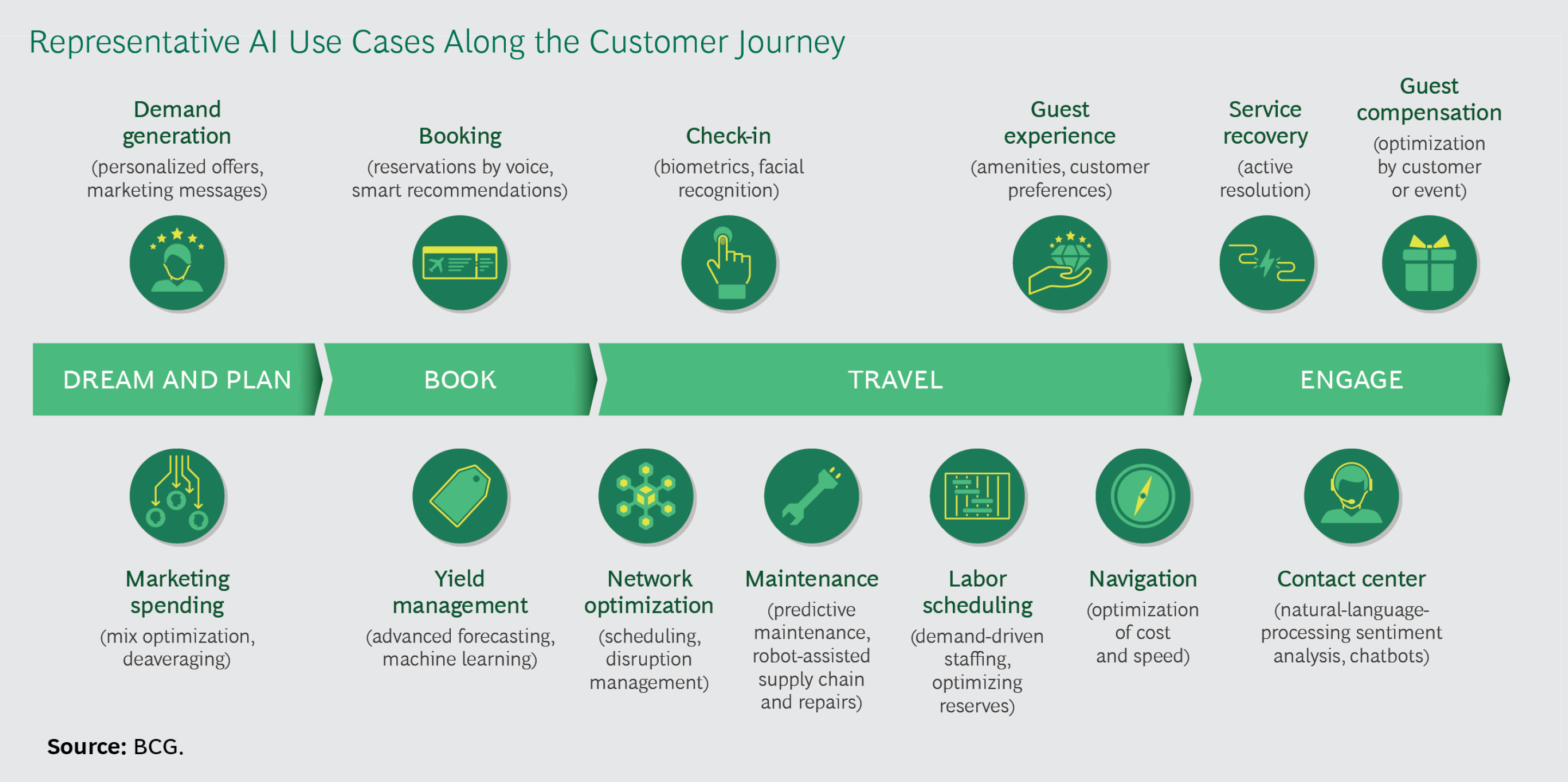
Here’s how BCG maps AI use cases across the customer travel journey starting from demand generation to prolonged engagement for consistent revenues.
As an evolving Machine Learning Development Company, we at Oodles are constantly exploring new possibilities for reviving growth in COVID-stricken industries. Our AI team is coupling advanced technologies like machine learning and computer vision with extensive data to build resilient AI applications. The next section elaborates on some of these AI developments in travel.
Future-ready Applications of Machine Learning in Travel and Hospitality
1) Contactless Thermal Scanner with Face Recognition
The novel coronavirus has made thermal scanning essential for public outlets from shopping complexes to airports and hotels. Witnessing the recent spike in thermal scanners, AI developers are all set to make the process frictionless with deep learning-based thermal scanning devices.
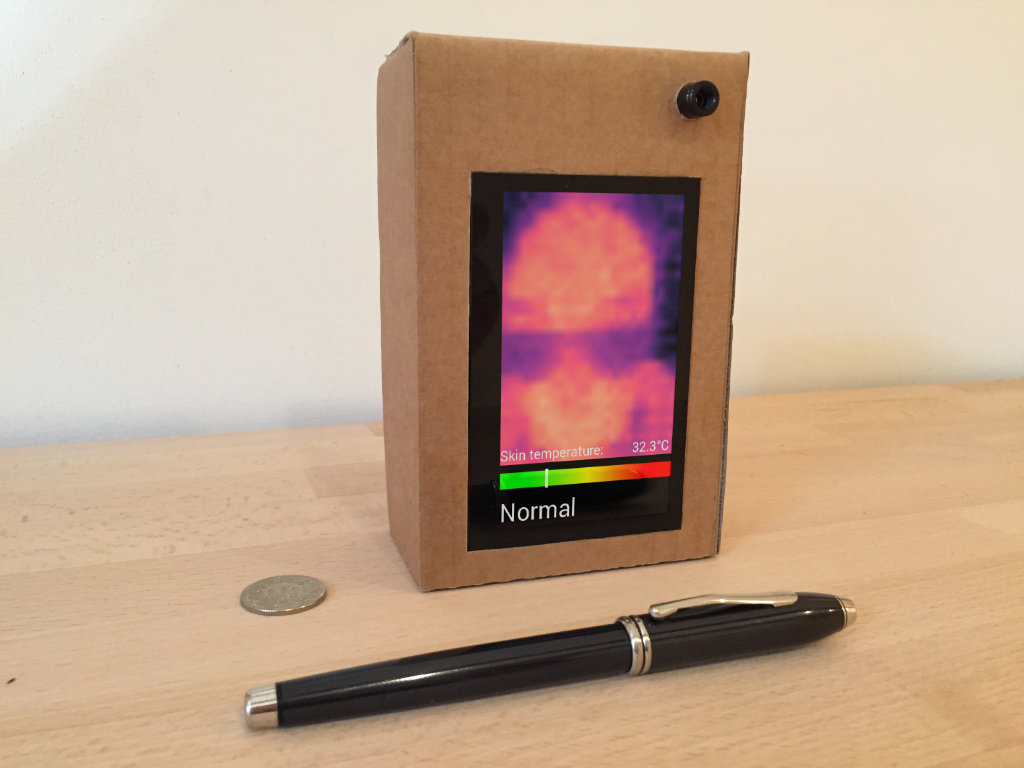
Thermal scanners connected to a Raspberry Pi Computer can efficiently scan moving human bodies without human intervention. The system can raise automatic alerts for high temperatures and can be easily deployed at airports, stations, and other passenger entry points.
Also read | Bracing Shopping Centers with Facial Recognition for Post-COVID World
2) AI-powered OCR for Seamless Check-in
Optical Character Recognition (OCR) is a traditional approach to extract texts from physical documents and store them in digitally accessible files. However, traditional systems required manual efforts to restructure templates for every fresh type of document. AI has eliminated this limitation by employing machine learning algorithms to identify different layouts, fields, and texts in any document type.
Contrary to manual data entry, AI can automate document digitization, text extraction, storage, and archive 5X faster and more efficiently.
For travel companies, AI-powered OCR can replace manual customer data entry from identity cards, passports, and other documents. Here’s a POC model built by the Oodles AI team that uses Tesseract OCR for data extraction from Aadhaar cards-
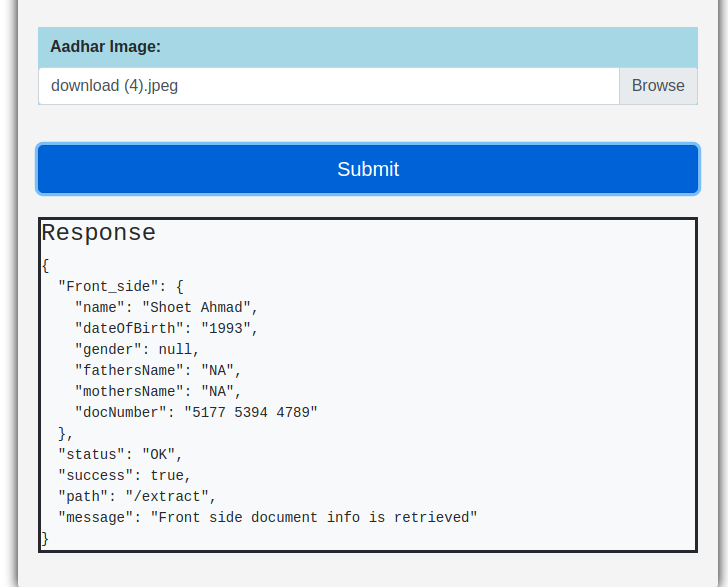
Having achieved over 95% accuracy, the AI-OCR system can automate digital onboarding, eKYC, check-ins, and verification at travel touchpoints.
Also read | AI-powered Receipt Digitization with OCR Systems for Businesses
3) Cognitive Chatbots for Instant Bookings
In the age of AI, a chatbot has become imperative for business strategies regardless of industry. From routine customer interactions and FAQs to complex queries and cognitive responses, a travel virtual assistant significantly improves customer satisfaction.
Powered by Natural Language Processing, cognitive chatbots feature self-learning capabilities that enable them to improve responses as customer interactions increase.
Travel and tourism companies can use AI chatbots for-
a) Booking flights, hotels, and restaurants
b) Personalizing recommendations
c) Providing customized offers, discounts, and updates
d) Connecting customers with human executives for instant ticket complaint resolution
e) Engaging customers with travel news, events, and destination information, and more.
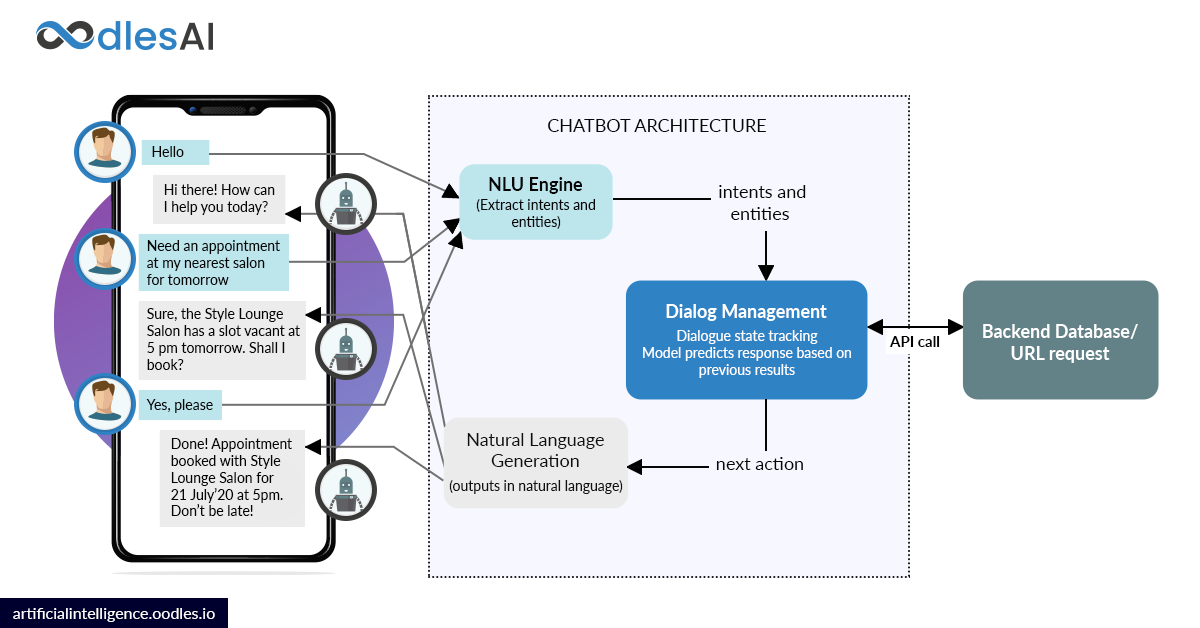
The better the training, the better responses an AI chatbot generates.
Amid coronavirus fears, we, at Oodles AI are making constant efforts to restart travel businesses with greater impact. Our AI team is packed with robust tools and technologies to build effective applications and opportunities for airlines, hospitality, and tourism businesses.
Join forces with our AI developers to revive your business operations and embrace the new normal.



